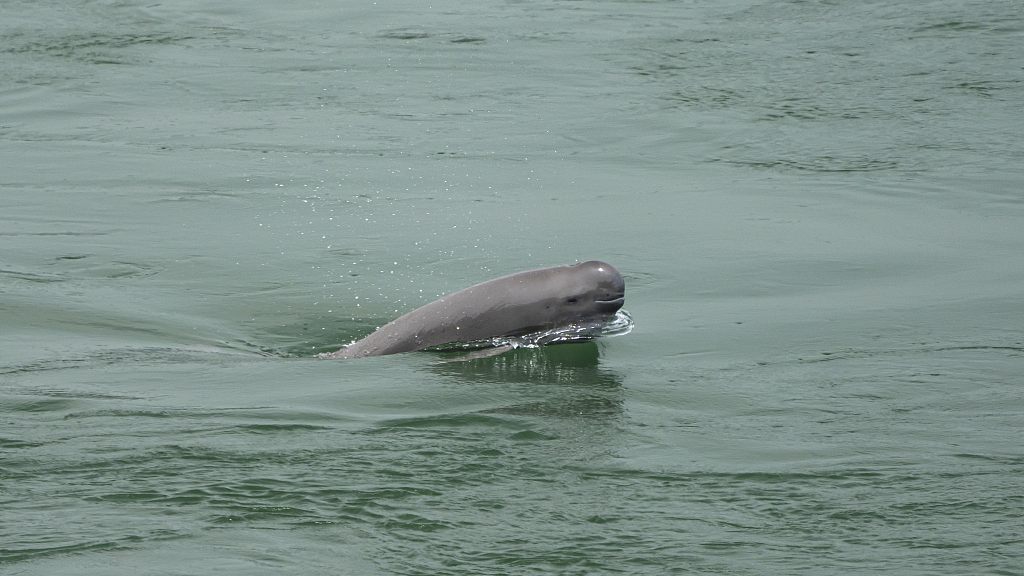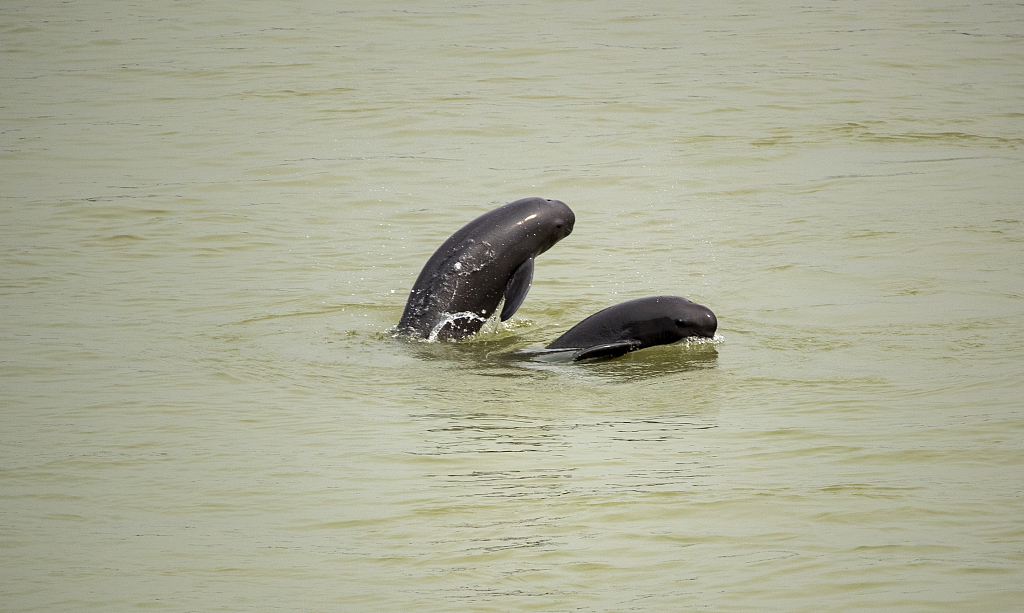
Newsroom
Study Reveals how the Yangtze Finless Porpoise Adapts to Temperature Changes
Chinese scientists have discovered how the Yangtze finless porpoise adapts to temperature changes by observing the thickness of its blubber, the thick layer of fat under the skin.
The study, conducted by scientists at the Institute of Hydrobiology under the Chinese Academy of Sciences, was recently published in the journal Water Biology and Security.

A Yangtze finless porpoise swims in the waters of Yichang City in central China's Hubei Province. /CFP
By monitoring four Yangtze finless porpoises using ultrasound imaging technology, the scientists investigated the variation patterns of blubber thickness (BT) and their relationship to environmental temperature changes.
They found that blubber was not evenly distributed in the skin of the animals and that different regions of their body display different sensitivities to seasonal temperature changes.
The BT in the anal girth region exhibited noticeable seasonal changes. Meanwhile, the umbilical lateral and ventral regions showed relatively blunt seasonal changes, indicating different adaptive functions of the blubber in different areas, according to the study.

Two Yangtze finless porpoises swim in the waters of Yichang City in central China's Hubei Province. /CFP
It has also revealed that the food intake of the Yangtze finless porpoises has a negative correlation with water temperature, which implies that something might be regulating BT by changing their appetite or food intake in different environments.
"This study elucidates the seasonal pattern of BT variation in small cetaceans and provides insight into adaptation mechanisms of small cetaceans to temperature changes," the study stated.
The Yangtze finless porpoise is one of the smallest cetacean species worldwide, which exclusively inhabits the middle and lower regions of the Yangtze River in China. It is under first-class state protection in China and is considered critically endangered by the International Union for Conservation of Nature.